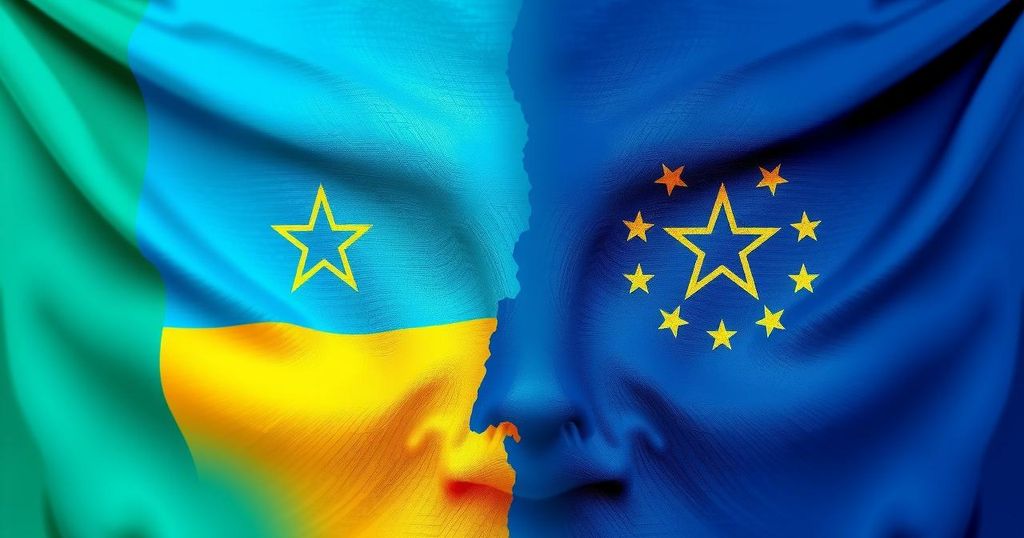Micronesia President Applauds Ethiopia-Eritrea Peace Accord at UN
Micronesia’s President Peter Christian commended the Ethiopia-Eritrea peace deal during his UN address, expressing hope for similar resolutions in other conflicts. The historic agreement, signed in 2018 by leaders from both nations, has drawn international admiration. The Micronesian leader also advocated for peace in the Korean Peninsula, underscoring the need for decisive actions from global leaders to resolve conflicts and alleviate suffering around the world.
The peace agreement between Ethiopia and Eritrea continues to garner international support, notably from the Federated States of Micronesia. President Peter Christian of Micronesia highlighted the significance of this peace process during his speech at the United Nations General Assembly. Within the context of global peace, he stated, “To wish for peace is global. It has no boundaries. Micronesia is encouraged by the peace reached by Eritrea and Ethiopia, and we wish the people of those countries the very best. We also wish that other countries who are engaged in conflicts that similar resolutions be achieved.” This sentiment was echoed by the leader of Costa Rica, who expressed satisfaction with the progress made in the region. The Ethiopia-Eritrea peace agreement, signed in July 2018 by Ethiopian Prime Minister Abiy Ahmed and Eritrean President Isaias Afwerki, aimed to resolve the long-standing tensions following a brutal border conflict. Recently, the two leaders reaffirmed their commitment to peace by signing another agreement in Jeddah and receiving recognition, including gold medals for their dedication to reconciliation from Saudi and UAE officials. In addition to the Ethiopia-Eritrea developments, President Christian discussed peace initiatives on the Korean Peninsula, urging global leaders to expedite efforts to resolve conflicts in troubled areas and enhance stability. He remarked on the importance of peace in the Korean Peninsula for the broader security and stability of the Pacific region, while also expressing concern over the ongoing suffering caused by global conflicts. He underscored the responsibility of world leaders, stating that it is deeply troubling to see them fail to take bold actions to address these serious challenges. In summary, the unity between Ethiopia and Eritrea has become a noteworthy example of successful diplomacy, inspiring calls for similar peaceful resolutions in other conflict-ridden regions. The commitment to fostering global peace remains a critical focus for leaders around the world, underscoring the importance of collective action toward resolving conflicts. President Peter Christian emphasized the importance of peace by stating, “To wish for peace is global. It has no boundaries. Micronesia is encouraged by the peace reached by Eritrea and Ethiopia, and we wish the people of those countries the very best. We also wish that other countries who are engaged in conflicts that similar resolutions be achieved.” This represents a powerful sentiment underscoring the need for global collaboration and supports the ongoing efforts for peace in various regions.
The Ethiopia-Eritrea peace agreement marked a significant turning point in the relationship between the two nations, which had been strained for decades due to a border conflict that led to extensive loss of life and resources. The landmark deal, signed in 2018, was a response to the call for peace and reconciliation between the two countries and has attracted global attention as a model for resolving similar conflicts elsewhere. Micronesia’s interest in this peace process, expressed at the United Nations, reflects a broader desire for harmonious international relations and a stable global community. Furthermore, discussions surrounding peace on the Korean Peninsula highlight the interconnected nature of international peace efforts and the responsibilities of global leaders in addressing conflicts that continue to affect millions worldwide.
In conclusion, the Ethiopia-Eritrea peace agreement represents a significant achievement in international diplomacy, gaining recognition from leaders including the President of Micronesia during his speech at the UN. The call for similar peaceful resolutions in other conflicted nations is a poignant reminder of the global responsibility to pursue stability and justice. As emphasized by President Christian, the world must unite to foster peace while recognizing the ongoing struggles of regions still affected by conflict. The commitment shown by Ethiopia and Eritrea stands as a beacon of hope for peaceful negotiations worldwide.
Original Source: www.africanews.com




Post Comment